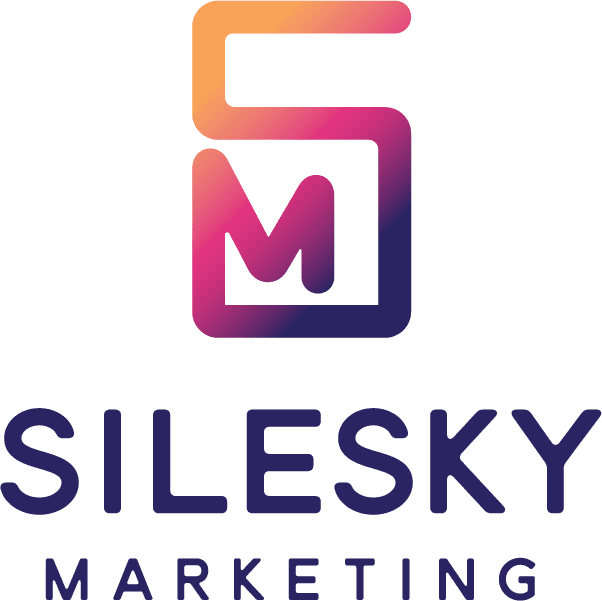
25 Feb AI and Your Brand Voice
There’s no doubt about it, AI is here to stay. So, what is a company suppose to do about their Brand Voice> Can Artificial Intelligence (AI) understand your brand that specifically? What about the personal way you conduct business? Using AI and your brand voice together takes a delicate balance. In fact, AI, although it’s made significant strides, analyzes vast amounts of data, and can automate routine tasks, it often makes considerable mistakes. In branding and marketing, using AI excessively will likely damage your brand voice. Finding a balanced strategy is key to maintaining your brand’s distinct identity.
The Essence of Brand Voice
What you need to understand
Brand voice is your business personality. It’s the emotion your communications convey. Are you compassionate? Friendly? Do you have a computer answering your phones? Perhaps you are completely an online store and noone has ever met the person behind the brand. Do you have a branded logo? What about brand colors that represent who you are? Afterall, color makes an impact on brands. Simply think for a minute– what are McDonald’s brand colors? How about Coca Cola or IKEA? Did you immediately think of the golden arches, or the rich red can of coke? I can picture the blue and yellow on IKEA’s building. How about you?
Brand voice is not just what you say, but how you say it. This creates a unique persona that connects with your audience. Being consistent is crucial to building a strong, cohesive brand identity in a competitive market.
The Human Element in Branding
A brand’s story is its heartbeat. It’s often filled with aspirations, challenges, and triumphs that connect on a human level. Storytelling is an art. It requires empathy, creativity, and a deep understanding of human psychology. A Marketing Agency thrives on these human insights to craft stories that engage and inspire. AI has not fully achieved this yet.
AI’s Ability to Incorporate Your Brand Information
AI, despite its advancements, struggles with human emotion and cultural nuances. Thus, it can generate content, but lacks authenticity and emotional connection. This gap can make communication feel robotic. It can alienate customers who seek genuine interactions. In addition, AI because of it’s limitations, cannot integrate your brand voice into its content generation.
Try this test. Open up your favorite AI tool and ask this question (but replace our business name with your own business name): “Can you tell me Silesky Marketing’s brand colors?”
Here are our the results from ChatGPT:
As an AI language model, I don’t have access to specific information about Silesky Marketing or its brand colors unless it has been shared in publicly available sources. If you have access to their branding guidelines, website, or any other official materials, you may find the information there. Typically, brands specify their primary and secondary colors along with their hexadecimal codes or Pantone values for consistency across various marketing materials. If you’re unable to find this information, you might consider reaching out to Silesky Marketing directly for assistance.
The Authenticity Gap
AI-generated information is efficient but lacks the depth and warmth of human-created messages. This can make brand communications feel impersonal. It undermines the trust and connection brands strive to build with their audience. A Branding Agency knows that authenticity is essential in today’s market. Consumers are more discerning than ever.
We asked another question. We wanted to know if the AI could identify our brand voice and it could not. Since it didn’t have specific information about Silesky Marketing’s brand voice, it wanted to create a hypothetical example based on common brand voice characteristics.
The Challenge of Capturing Brand Essence
A brand’s essence is a delicate mix of values, voice, and vision, shaped by human experiences. AI’s algorithmic nature makes it hard to capture and convey this essence. This risks making a brand’s identity diluted or generic among competitors. While we could add information to the AI to help it understand our brand voice, without a lot of marketing insight and understanding, the AI would not be able to do this.
The Risk to Creative Differentiation
In a world where brands compete for attention, a brand’s unique voice is its competitive edge. AI’s tendency to generate formulaic content can erode this uniqueness. This makes it harder for brands to stand out. This is a critical issue for any advertising agency aiming to position its clients above the competition.
The Impact on Customer Relationships
The Trust Dilemma
Trust is the foundation of lasting customer relationships. It grows through consistent, authentic, and personal interactions. AI’s inability to fully replicate these interactions can lead to a trust deficit. This affects customer loyalty and retention. Customers are smart and they can see through the robotic nature of impersonal content.
Aligning with Customer Expectations
Consumers want personalized, engaging brand experiences. AI is good at personalizing content based on data. Yet, as we’ve exhibited, AI falls short in delivering the depth of engagement that human-created content can. This can disappoint customers and impact brand perception and loyalty.
The Importance of Emotional Connection
Emotional connection drives customer loyalty. AI’s limitations in understanding and conveying complex emotions will hinder this connection. This leads to more transactional and less loyal customer relationships.
The Role of AI in a Balanced Strategy
Enhancing Human Creativity
AI’s real value is in augmenting human creativity, not replacing it. By analyzing data and identifying patterns, AI can provide creative professionals with insights. These inform more effective and innovative branding strategies. This creates a powerful synergy between human intuition and technological capability.
Streamlining Operational Tasks
By automating repetitive tasks, AI allows creative teams to focus on what they do best: creating compelling brand narratives. This boosts operational efficiency and ensures resources are directed towards enhancing the brand voice and identity.
Personalization at Scale
AI is great at processing large volumes of data to personalize customer experiences at scale. When guided by human insight, this capability can tailor brand messaging to individual preferences and behaviors.
Navigating the Challenges
Prioritizing the Human Element
To use AI in branding effectively, the human element must come first. Creative professionals should lead the content creation process. They ensure each message reflects the brand’s unique personality and values.
Adaptation and Continuous Learning
The digital landscape and AI technology are evolving fast. Brands must stay agile, continuously learning and adapting. They should leverage new AI capabilities without losing their brand voice or customer relationships.
New Considerations in the AI Era
Ethical Use of AI in Branding
As AI becomes more integrated into branding, ethical considerations become crucial. Brands must use AI responsibly, ensuring transparency. They should guard against biases that could harm the brand’s reputation and customer trust.
The Future of AI and Branding
The future of AI in branding is about collaboration, not replacement. AI innovations will continue to offer new ways to enhance brand strategies. Yet, the core of branding will always be human. It’s rooted in genuine stories and connections.
Building a Resilient Brand in the Digital Age
In the fast-paced digital world, building a resilient brand means embracing technology. It also means staying true to your unique brand voice. It’s about finding the right balance between using AI’s capabilities and maintaining an authentic, human-centric approach that engages customers.
Final Thoughts
Incorporating AI into branding efforts is a nuanced journey. It requires a balance between technological efficiency and the irreplaceable value of human touch. By recognizing AI’s limitations and prioritizing human-driven storytelling, brands can use AI to enhance their strategies. They do this without compromising their unique voice. Whether through a Branding Agency, Marketing Agency, or Social Media Marketing Agency, the goal remains the same. Grow your business by forging deeper connections with your audience, grounded in authenticity and empathy.





Sorry, the comment form is closed at this time.